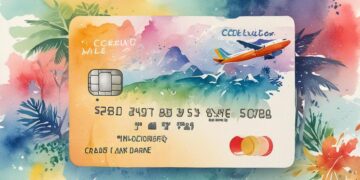
How to start investing in ETFs with little money
This guide highlights how beginners can confidently invest in ETFs, even with limited funds. It emphasizes the benefits of diversification, low costs, and flexibility while outlining essential steps to start investing, build a portfolio, and select the right brokerage platform for a successful investment journey.

Best Personal Finance Apps to Organize Your Bills
Managing finances can be daunting, but personal finance apps offer powerful tools for organization and budgeting. With features like bill reminders, expense tracking, and customizable budgets, these apps simplify financial management, reduce stress, and empower users to make informed decisions toward achieving their financial goals.

How to Evaluate a Company’s Financial Health Before Investing
Understanding a company's financial health is essential for informed investing. Key indicators like revenue trends, profit margins, and cash flow provide insights into performance and stability. Evaluating financial statements, market positioning, and management effectiveness equips investors to make strategic decisions and enhance their chances of long-term success.

Signs that you are ready to invest in stocks
Investing in stocks requires careful preparation, including establishing clear financial goals, building an emergency fund, and understanding market risks. Assessing your financial literacy, managing debt, and developing a diversified portfolio are also crucial. A disciplined mindset will foster growth and guide you through market fluctuations effectively.

How to open a 100% online investment account
Discover how to effortlessly open a 100% online investment account, unlocking the advantages of convenience, lower fees, and diverse options. This guide walks you through selecting a reliable platform, funding your account, and choosing investments, empowering you to confidently manage your financial future and achieve your goals.

Difference between revolving credit and installment credit on a card
This article explores the key differences between revolving and installment credit, emphasizing their unique structures, payment flexibility, and impacts on credit scores. Understanding these distinctions empowers individuals to make informed financial decisions tailored to their habits and goals for better financial health and stability.

How to Use Credit Card Miles to Save on Travel
Discover how to maximize travel savings using credit card miles. Learn to earn rewards through everyday spending, capitalize on sign-up bonuses, and choose optimal redemption strategies for flights and accommodations. With the right approach, transform your expenses into unforgettable travel experiences while reducing costs significantly.

Tips for Managing the Family Budget Without Complicated Spreadsheets
This article offers practical tips for managing a family budget without relying on complicated spreadsheets. It emphasizes setting clear financial goals, creating a simple spending plan, tracking expenses, and involving the whole family. By adopting these straightforward strategies, families can enhance financial health and foster teamwork in their financial decisions.

How to diversify your investment portfolio
Diversifying your investment portfolio is vital for managing risk and enhancing returns. By spreading investments across various asset classes like stocks, bonds, real estate, and commodities, you create a balanced strategy tailored to your financial goals and risk tolerance, ultimately fostering long-term stability and growth.

What is the best type of bank account for self-employed individuals?
Self-employed individuals face unique financial management challenges that require careful consideration when choosing bank accounts. Key options include business checking and high-interest savings accounts, each tailored to streamline transactions, expense tracking, and savings. Evaluating fees, accessibility, and support can lead to effective banking solutions that bolster entrepreneurial success.